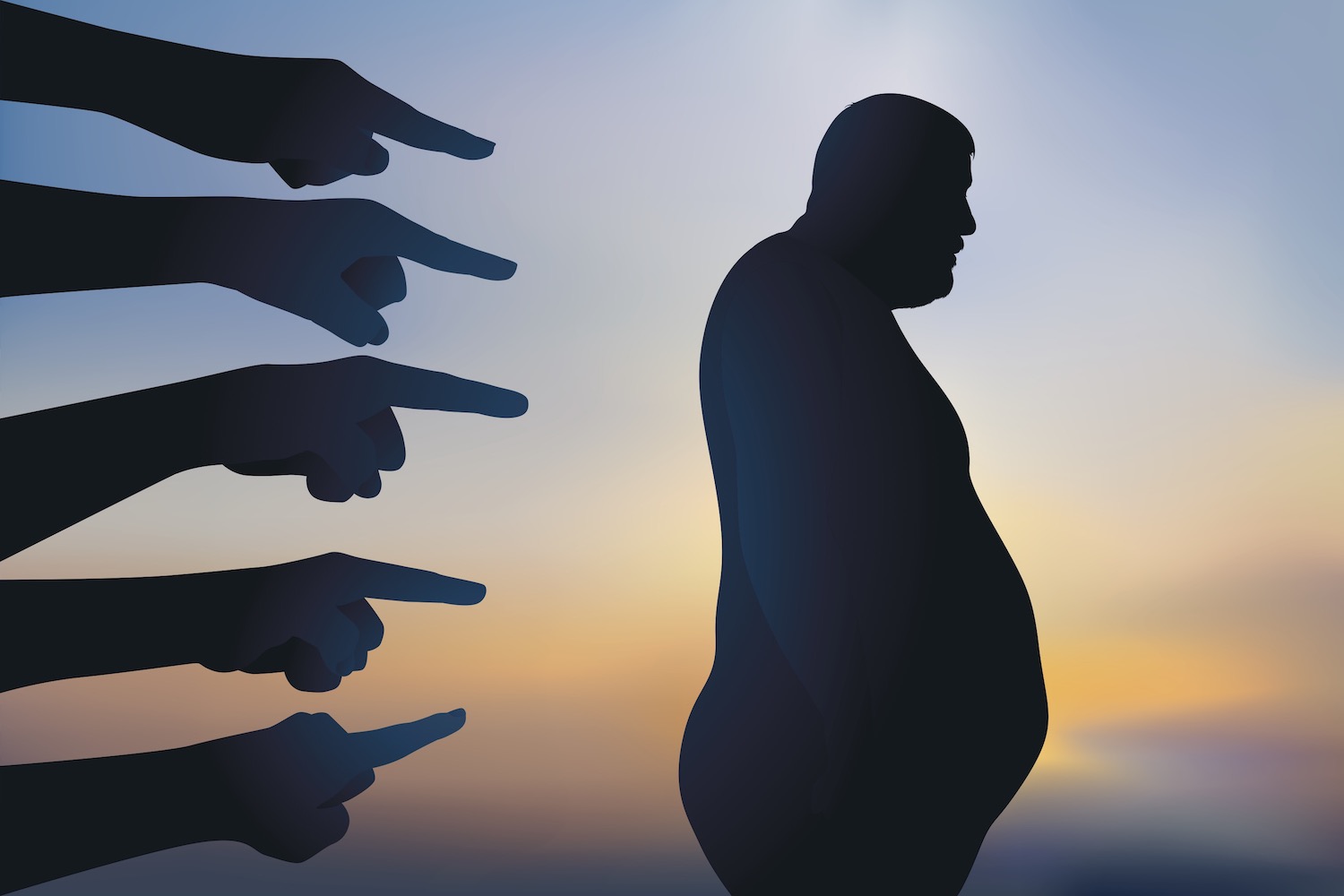Blogs
The Stigma of Being Overweight

There are two sides of sigma relating to physical condition – the judgement of others and the judgement and disapproval of ourselves. The reality of society is that being overweight/obese can negatively impact many areas of our life, such as interaction with others, relationships, employment & livelihood, socialising, engaging in physical activities, sharing experiences with our children and even travelling – restricting overall quality of life. Feeling uncomfortable in your own body or to the extreme, self-loathing, is a very debilitating issue and far more common than you may think. We have two choices – to decide to ‘own it’ or to seek assistance to change it.
Article
I have to let you all in on a secret.
When people are overweight, they know. You don’t have to tell them. You don’t have to offer your top five weight loss tips, share your thoughts on miracle fat burning foods or come up with an exercise plan. Especially, don’t come up with an exercise plan.
Fat shaming is such a scourge on public health and wellbeing and it has to stop. It breaks me heart to be honest with you.
It feels bad enough to be carrying extra weight without completely unhelpful, unsolicited comments that have the power to do enormous damage and further delay any positive behavioural change around health and diet.
It’s limiting, offensive and is likely to have the opposite effect of the intention. Friends and family or even strangers commenting on your weight may say they mean well or are only trying to help, often using their most friendly tone of voice, but they will likely make you want to hide even further in your shell. The world then becomes much smaller along with any chance of becoming healthy.
The fact is that most people are mortified enough as it is when they are chronically overweight or obese. We wish this wasn’t the case but so many scholarly studies have found a correlation between obesity and self-esteem or body issues, particularly in impressionable teenagers.
The effect on the way life is lived is profound and distressing. Sometimes it’s just perception but often there are very real issues of discrimination, judgement and stigma.
I used to have an exercise studio in Melbourne, Australia, where I was known for training a lot of celebrities. I realised something was going wrong when non-famous people would make an appointment and say it had taken them two years to take that first step because they thought I only trained the famous and fabulous. We took them under our wings straight away and got them on a great program that led to even better results but I couldn’t help feeling regretful that they had ever experienced those feelings of lack and lower self-worth.
I currently have a client who arrives at my office for a consultation after scurrying through the back side streets. She doesn’t want to walk on a main road for fear of being noticed. She’s also the lady who told me she’d just seen the most beautiful cashmere jumper in a shop window but would never dream of entering the store because she felt sure they wouldn’t stock her size. The thought of having that whole conversation with a slender sales assistant was so overwhelming and distressing that she didn’t bother.
Another client who has been diagnosed as morbidly obese made an appointment with me but later told me he’d been traumatised about it for days, wondering where he was going to sit during the consultation. When he arrived at my office, I put two chairs together for him because he wouldn’t have been able to sit on one chair alone. When he sat on the chairs, one of them started to break. These incidents are potentially extremely distressing for people who are trying to do something about their health but are confronted at every turn with negativity and social stigma.
That same client has wanted to travel on an aeroplane but can’t because he knows he wouldn’t be able to fit into the small toilet compartment. The result is that he can’t ever travel until he loses weight. In fact, this man is actually too scared to even leave his house and has tragically become a house bound. It’s a lonely, fear-filled life.
Or my other heartbreaking clients who are too embarrassed to collect their children at the school gate so they wait for them in the car, or the man who doesn’t want to take his son to the park to kick a football because he’s so conscious of being noticed when he’s out of breath and starts puffing.
I recently saw a show about weight loss on television where a group of men approached an overweight man who was sitting on a park bench. He just wanted to get some sun and enjoy the surroundings in his own space and with his own thoughts. The men who approached `kindly’ referred to him as `mate’ as they asked him what he was doing with his life. They told him he had to start exercising. They were trying to help but it was in such a back-handed way that it was unwelcome and offensive. Would they have commented on someone who was minding their own business in the park but had some type of disability? Would you approach someone in a park and tell them they were wearing awful clothes and should do something about their wardrobe?
It’s wrong, it’s inappropriate, it’s incredibly rude and ignorant and could be setting the person on an even more destructive path of feeling hopeless and unaccepted.
Honestly, no-one who is that overweight is unaware of it because it creeps into every part of life. The stigma can so often escalate the eating pattern which is a type of addiction. If you’re addicted to alcohol, cigarettes or other drugs, you can feed your addiction in private but if your addiction is food, it’s on show for everyone to see. There is no way to hide it. The moment you walk out the door, you’re completely exposed and in varying levels of fear about being judged.
No one is in a place to judge another in this way. Stop the shaming and see that, if someone is overweight, there’s a reason. Maybe they’ve been on a diet they were told would help but only made it worse. Maybe they have an addiction or, like most people, don’t have much knowledge of the foods that will help them achieve their goals.
But above all, I really wish people would start putting health as their priority, not the way they look. It’s about physical and mental health. That’s always number one.


